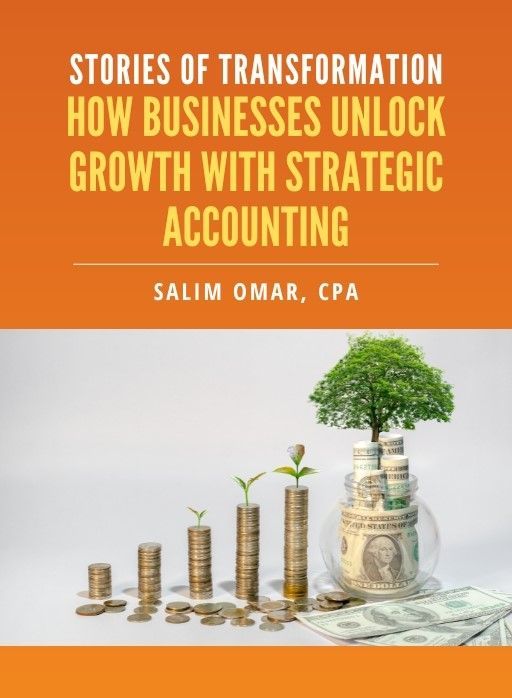What to Do If You Missed a Tax Deadline: Penalties, Extensions, and Fixes

Missed tax deadline, IRS late filing penalties, tax extension options, amended return, failure-to-file, failure-to-pay, tax penalty relief, tax compliance strategy, IRS repayment plan, and back tax solutions—these terms might sound like a mess of tax jargon, but they’re more than just buzzwords. They’re part of the very real path to fixing your tax situation fast and smart.
Missing a tax deadline isn’t the end of the world, but ignoring it? That’s where the trouble really starts. Whether it’s personal taxes, business filings, or payroll returns, the longer you wait, the bigger the consequences. But here’s the good news—there are clear ways to minimize penalties, catch up on filings, and even request some penalty relief if you qualify.
Let’s break down what happens when a tax deadline slips by and how Straight Talk CPAs can help you get back on solid ground.
What Actually Happens When You Miss a Tax Deadline?
Depending on what kind of return you missed and whether or not you owe taxes, the consequences vary. But here’s the bottom line: the IRS notices. And they don’t forget.
Here’s what you’re up against:
- Failure-to-file penalty: Typically 5% of the unpaid taxes per month (or part of a month) your return is late, up to a max of 25%.
- Failure-to-pay penalty: This one's smaller—0.5% per month—but it adds up fast if you owe a lot.
- Interest: The IRS tacks on interest (currently around 8%) on top of your unpaid taxes and penalties, compounding daily.
If you’re more than 60 days late filing, the minimum penalty jumps significantly—either $485 or 100% of your tax due, whichever is
less. But that’s still a painful hit for simply not turning in paperwork.
Business Owners, Watch Out
If you missed payroll tax deposits or employment tax filings, the penalties can get even steeper. The IRS sees payroll taxes as trust fund money—you collected it from employees and were supposed to remit it. Failing to do that is taken very seriously and can result in Trust Fund Recovery Penalties (TFRP), which can follow business owners personally.
Missed the Deadline But Don’t Owe? You're Not Off the Hook
Even if you expect a refund, filing late can still cause trouble. For starters, there’s a three-year window to claim that refund. Miss that, and the money’s gone—permanently. Plus, the IRS may still delay future refunds if you have unfiled returns on your record.
Step 1: File As Soon As Possible
The IRS penalties are time-based. Every day counts. So, the sooner you file—even if you can't pay—the better.
Straight Talk CPAs often sees clients assume it’s better to wait until they can pay in full before filing. Big mistake. Filing late and paying late doubles your penalties. By filing first, you cut one of those penalties off immediately.
Step 2: Figure Out Your Payment Options
If you can’t pay what you owe in full, the IRS offers payment plans that allow you to catch up over time. A few common routes:
- Short-term plan: For balances under $100,000 and paid within 180 days.
- Long-term installment plan: For larger debts, monthly payments up to 72 months.
- Offer in Compromise: In rare cases, the IRS might accept less than you owe if you prove financial hardship.
Need help negotiating? That’s where professional help makes a difference. Straight Talk CPAs regularly steps in to structure payments that fit your cash flow and keep the IRS satisfied.
Step 3: Consider Filing for Penalty Relief
Believe it or not, the IRS does offer penalty relief in some cases.
You might qualify if:
- It’s your first time being late (called
First-Time Penalty Abatement)
- You had a reasonable cause—like a serious illness, death in the family, or natural disaster
- You’ve been compliant in the past three years
To get relief, you or your CPA must formally request it—either in writing or over the phone with an IRS representative. A good CPA knows exactly how to frame the request and what documentation helps your case.
What About Amending a Return?
If you missed a deadline and realized you made a mistake on a previously filed return, you might be wondering: Should I fix it all in one go?
Yes—but with guidance.
You can file an amended return (Form 1040-X) to correct errors on your original return, whether that’s missing income, incorrect deductions, or a change in filing status. Amending a return doesn’t
reset your penalty timeline, but it can prevent future audits and additional penalties for inaccurate reporting.
State Returns Count Too
Don't forget state tax deadlines! Many states follow the IRS calendar, but the rules for penalties and extensions vary. Some states are more aggressive than the IRS when it comes to fees. Straight Talk CPAs tracks both federal and state filings to make sure nothing slips through the cracks.
When Is It Too Late?
As long as the IRS hasn’t assessed a failure-to-file penalty yet, you still have time to reduce the damage. If they have, you can still request penalty abatement and set up payment plans—but the longer it goes, the harder it gets.
After a while, unpaid taxes may result in:
- Tax liens (public record claims on your property)
- Levies (actual seizure of money from your accounts or wages)
- Credit score impact (if liens are filed)
The IRS is patient but persistent. They won’t chase you immediately—but when they do, they come
prepared. That’s why action now is always better than reaction later.
Real Example: The Multi-State Construction Firm That Got Hit with Late Payroll Filings
An established construction company operating in four states missed several payroll tax deposit deadlines during a busy expansion phase. While the accounting team was focused on onboarding a new software system, they didn’t realize the automated payroll tax payments hadn’t been properly synced with the IRS schedule.
By the time the issue surfaced, the business was facing over $42,000 in penalties and growing interest.
Straight Talk CPAs stepped in quickly—first, to file the missing returns and correct reporting errors, then to apply for penalty abatement using IRS Form 843 and documentation of system failure. Within 60 days, the IRS approved relief for a significant portion of the penalties, reducing the financial hit by over $28,000.
This strategic intervention not only saved the company money—it helped them tighten their compliance systems and avoid similar issues in the future.
You’re Not Alone—and You Don’t Have to Fix It Alone
Missing a tax deadline is stressful, but it’s fixable. What matters most is how quickly and smartly you respond.
Straight Talk CPAs helps individuals, freelancers, and businesses get back in compliance, negotiate with the IRS, and minimize the long-term damage. Whether you missed a personal filing, business return, or payroll deposit, there’s a clear path forward—and we can walk it with you.
Free eBook:
Stories of Transformation


Salim is a straight-talking CPA with 30+ years of entrepreneurial and accounting experience. His professional background includes experience as a former Chief Financial Officer and, for the last twenty-five years, as a serial 7-Figure entrepreneur.




